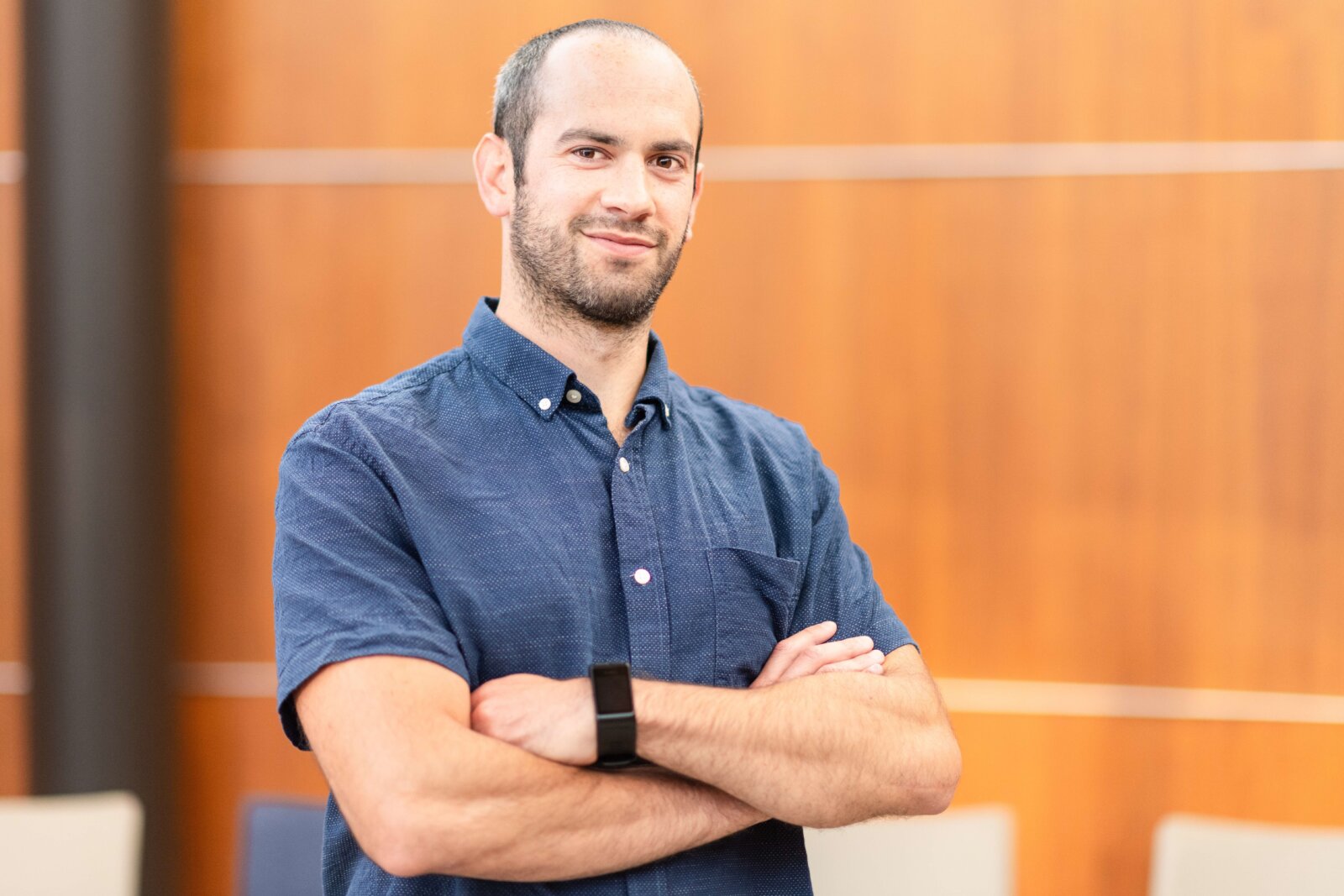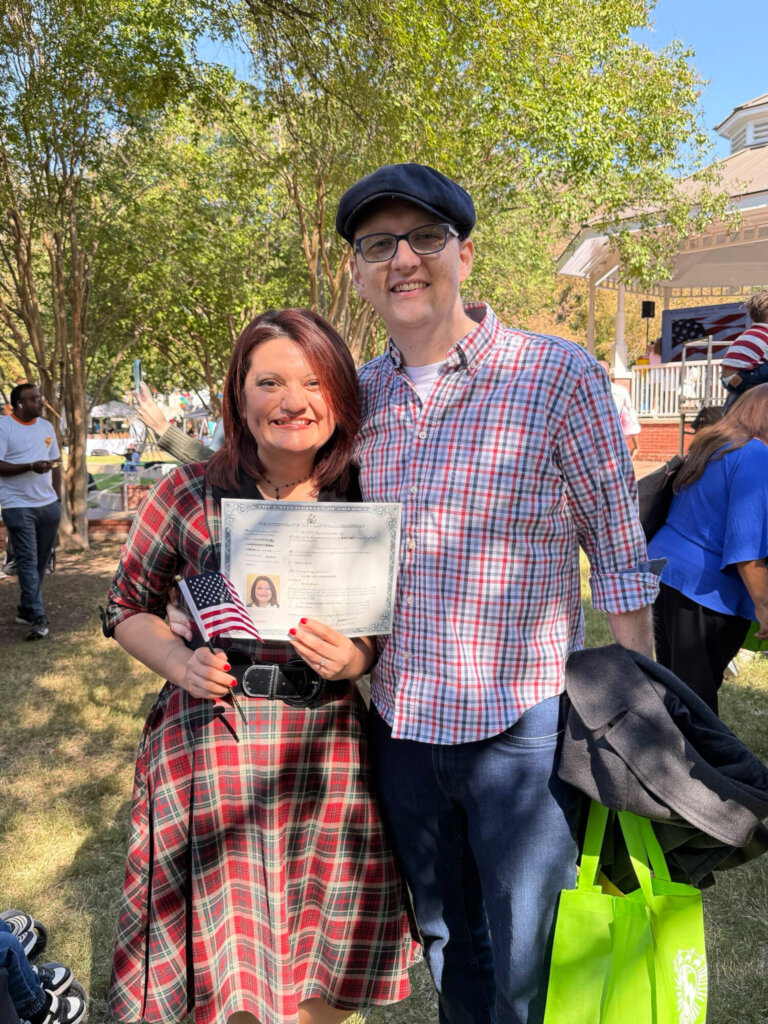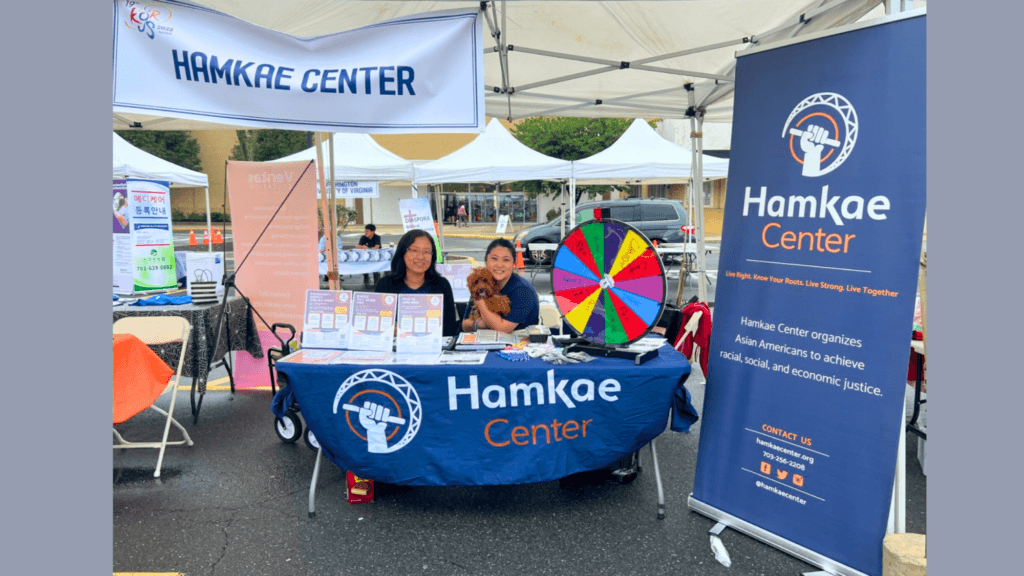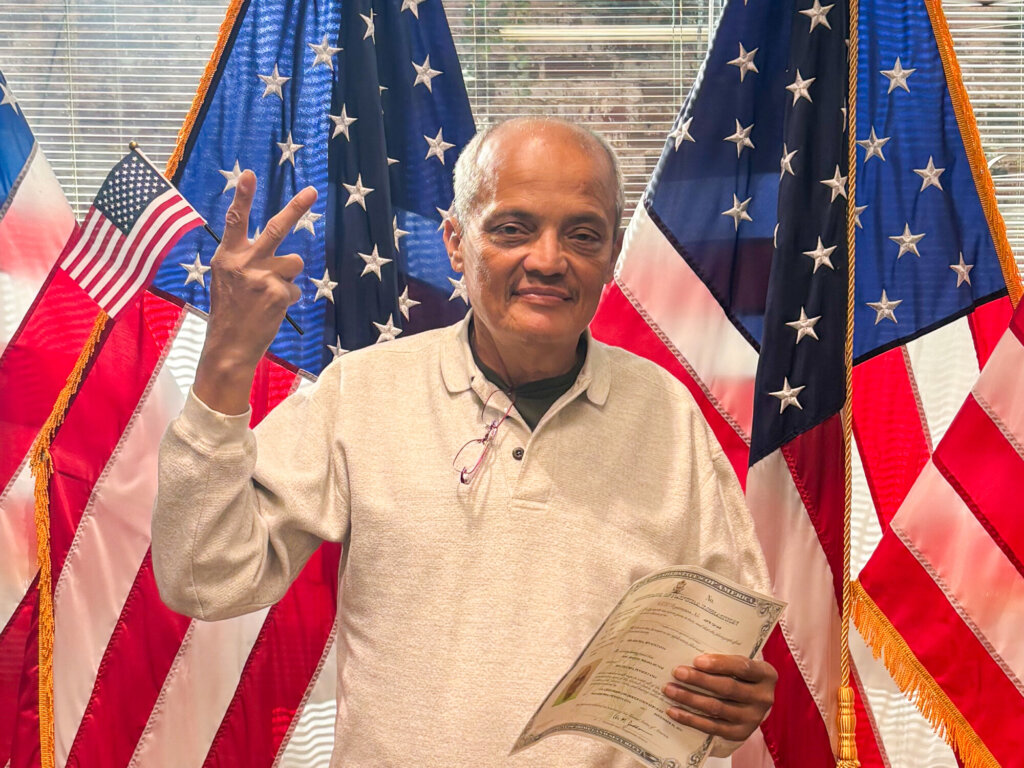Eric Holzapfel: “My Citizenship Story Came Full Circle”

Explore more
(Photo by Shelly Erceg)
I came to the United States first with my mom when I was 4 years old. She
came to study education for 6 or 7 months, and wanted to open a language
academy in Ecuador for people to learn English. As my mom was finishing her
education there was a financial crisis in Ecuador, so it wasn’t a great time
for her to go back. She was offered a job in the U.S. and her work visa allowed
her to sponsor my dad and me. He later got a job that sponsored his visa. Our
green cards eventually followed.
The amount of time we lived here just kept getting longer and longer. One
day you wake up and realize—we’ve lived here 12 years and we like it! Maybe we
should stay for the foreseeable future. I’ve talked to a lot of people who have
come here that way—you don’t necessarily expect to stay forever, but eventually
something changes the equation for you.
My dad is from Chile, but my parents met in Ecuador where my mother grew
up. My mom’s parents were Jewish refugees from Czechoslovakia who fled shortly before the
Nazis invaded. The U.S. was the top choice for my great-grandparents, but at the time
the door was shut to them. A lot of Jews during World War II were denied entry
into the United States. But my great-grandparents ended up in Ecuador of all places. They
didn’t speak the language and they didn’t know the culture, but they figured it
out as they went along.
I think for me a big motivation to become a citizen was to have the
ability to vote. I was a policy nerd ever since I was a child. It was my
grandfather’s influence. My grandfather was a chemical engineer. He always
followed the state of affairs. When I was growing up my mom was in the United
States studying, and my dad was traveling a lot for work, so I grew up with my
grandparents for a few years and my grandfather and I spent a lot of time
together. He really taught me about being an informed citizen and civic
engagement. Now I catch up with him over the phone and we usually talk
politics.
Some
people say, “I’m not going to talk about politics. It doesn’t affect me.” For
my family, that’s never been true because politics forced my family on my
mother’s side out of their homeland. And my dad’s family is from Chile where
there was a brutal military dictatorship, which also drove them out of their
country. So, whether we like it or not, politics plays a role in our lives, and
that has always impacted how my family feels about being civically engaged and
participating in the process—you can’t opt out.
I
think the moment that I really felt the importance of becoming a citizen, and
the benefits that came along with it, was during the election of 2012. I had
missed out on the election of 2008, which for my generation was really
exciting; at the time we felt that it was life or death, everything was on the
line. So by 2012, I thought it was really important for me to be able to vote
in that election. I remember filling out the citizenship application packet for
weeks on end. For the most part, people have a fear of the unknown. Time was a
barrier for me, and I think there are many ways to address all those barriers. When
you’re able to see an example of what the process looks like, I think that
eases tensions. When my organization, Entre Hermanos, holds citizenship classes,
we always bring someone in who recently naturalized. It helps people connect to
someone who looks like them, who has had similar experiences, and can bring the
process back down to earth.
I hit a barrier when I told
the head of the USCIS office that I was going to study abroad, which would
interfere with my oath ceremony. He determined that it was not a good reason to
delay attending the ceremony. What I learned in the process is that we have
recourses. Even if you are a still a green card holder, the country’s elected
officials will work for you. I was living in Kentucky and in this case the
Republican senator from Kentucky intervened on my behalf. I was a senior in
college when I became a citizen.
It was when I was at the ballot box that the inspiration and the importance of citizenship hit me. My story came full circle; my great-grandparents tried to get into the United States and couldn’t, then almost 80 years later I become a U.S. citizen. It is kind of remarkable.
Eric Holzapfel is the Deputy Director of Entre Hermanos, an affiliate of the New Americans Campaign in Seattle, WA



